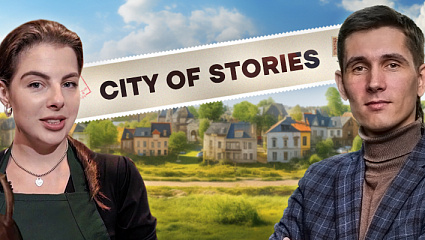Indian doctor speaks about role of palliative care at coronavirus time
Dr. Mallika Tiruvadanan is MBBS.,D.A., MNAMS (Anaes.), Dip. in Palliative Medicine (Edith Cowan Univ., Perth, Aus.). She is a founder trustee at Lakshmi Pain and Palliative Care Trust Charitable Organisation.She conducted workshops for Opioid Availability with Pallium India, achieved some landmarks, with Health Dept., Govt. of TN since 2003.
Dr. Mallika works as an adjunct professor at palliative medicine at The Tamilnadu Dr. MGR Medical University. She wants to make palliative care easily available for all in the State of Tamil Nadu and dreams of inculcatingprinciples of palliative care into UG & PG curriculum.
Dr. Mallika Tiruvadanankindly shares her knowledge about palliative care and its importance in delivering good medical care with TV BRICS.
What is palliative care?
The word 'palliate' means ‘to relieve suffering’.
Many patients who are affected by chronic or life limiting diseases like cancer, not only suffer from the disease, but also from the distressing symptoms caused by the disease – like pain, vomiting or breathing difficulty.
‘Palliative Care’ is all about the treatment of these distressing physical symptoms and addressing the emotional, social and spiritual issues experienced by both patient and family who are affected by these chronic diseases. The whole aim of palliative care is to improvetheir quality of life.
What are its main tasks?
Palliative care is a ‘holistic’ approach whichinvolves treatment of the physical symptoms with appropriate medicines so that they are relieved effectively throughout the disease trajectory. Secondly, fears and anxieties cannot be relieved with a simple “Don’t worry” or “everything will be alright”. It requires skilled counseling to relieve the emotional, social and spiritual distresses which are invariably experienced by both patient and family. Palliative care is therefore best given by a multi-disciplinary team of doctors, nurses, counselor, volunteers and social workers trained in palliative care.
When is it applicable for a patient?
Since palliative care is about relieving suffering, it will be applicable whenever the patient suffers due to a disease. Suffering can start right from the time of diagnosis. For example the very diagnosis of a disease like cancer, curable or not, can cause panic and affect the family too in many ways. Patients can go through distressing side effects during treatment and experience much more suffering in the advanced stage if incurable.Similarly the present covid infection can cause panic even in the pre diagnosis stage waiting for the test result - needless to mention the physical and mental agony that can continue during the process of ongoing infection. So Palliative care is a form of supportive care that can be given throughout the disease and not just in the terminal stage of a disease.
Who will benefit from palliative care?
Palliative care will benefit all those who suffer from ill health – it is not a stand-alone subject. It is complementary to all medical specialties. Patients with any disease, any stage and any age will benefit fromPalliative care. It is now accepted globally that adopting palliative care principles will definitely helpeven in acute situations like the current pandemic.
What role is palliative care currently playing in the coronavirus pandemic?
Patients affected by the corona virus can experience breathing problems and aches and pains besides other symptoms. They and their families can encounter major psycho social impact because of the separation from loved ones and the risk of death. Children who have lost parents, grandparents will also need psycho social support.Palliative care with specific medicines for lessening the distress of breathlessness and relieving pain can help give relief. Regular communication over phone and counseling via video calls will greatly help them to cope and enhance quality of life along with the disease treatment.
What is the hardest part about dealing with palliative patients during a pandemic?
Unlike the common palliative needs of patients with chronic disease, there can be specific challenging issues during a pandemic. One of the hardest partfor both patients and their families will be to deal with the compulsory isolation. Hospitalizationespecially, can have very serious psychosocial, cultural and spiritual impact on patients and families – being alone, anxieties about unfinished businesses, fear of dying alone, unable to have their ‘end of life’ wishes fulfilled, and for families to have their loved ones in this situation, the pain of losing them and the inability to bring home to perform the last rites.All this can be quite challenging issues to deal with.
Do you think it is necessary to completely isolate elderly palliative patients during a pandemic? Or, leaving them all alone could make them worse? What to do then?
Elderly patients also need to be isolated at home or in the hospital. This can definitely lead to emotional turmoil. Many of them may also need physical help. At home, one may have to strike a balance between total isolation and rendering physical help to palliate their needs especially in patients with disabilities or those with diseases like dementia,taking the recommended precautions to avoid getting infected. Those in the hospitaldoget help from the various staff, but home or hospital, they need more of the emotional support as they are isolated and can feel quite helpless. This is where palliative care can definitely help - Counseling andsimply listening to them, reassuring support from family members and the palliative care team, giving them the necessary information and realistic hope go tohelp them cope with the disease.
What conclusions did you draw during the pandemic? What do you think needs to be improved in the palliative care system?
The pandemic has literally shaken me and awakened me to the hard truth of life that the moment we are born we are subject to disease and death is inevitable. Quality of life matters more than just longevity. Knowing about palliative care helps us live as well as possible, cope as well as possible when disease strikes and helps accept the eventuality.
In a Pandemic like this, there are huge economic, cultural, intellectual challenges to be met especially in a country like ours. It is the duty of the government and public to be disciplined and see that therecommendations given by the WHO are followed strictly to successfully get rid of the current situation.
We must ensureavailability and affordability of basic palliative care services and essential palliative medicines listed by the WHO.
Educating the public in basic palliative care techniques including psychosocial and spiritual care is a must to help those in need of palliative care.
Palliative Care is part and parcel of treatment of any disease. Educating existing health care professionals and paramedicsis mandatory as the principles of palliative care are yet to be implemented in the medical and nursing curricula on a wide scale in the country. Knowledge in the use of appropriate medicines to relieve painful symptoms and effective communication skills to alleviate their emotional distress will help relieve suffering, improve quality of life and establish a trusting relationship between the Palliative Care team and those affected.
Dr. Mallika works as an adjunct professor at palliative medicine at The Tamilnadu Dr. MGR Medical University. She wants to make palliative care easily available for all in the State of Tamil Nadu and dreams of inculcatingprinciples of palliative care into UG & PG curriculum.
Dr. Mallika Tiruvadanankindly shares her knowledge about palliative care and its importance in delivering good medical care with TV BRICS.
What is palliative care?
The word 'palliate' means ‘to relieve suffering’.
Many patients who are affected by chronic or life limiting diseases like cancer, not only suffer from the disease, but also from the distressing symptoms caused by the disease – like pain, vomiting or breathing difficulty.
‘Palliative Care’ is all about the treatment of these distressing physical symptoms and addressing the emotional, social and spiritual issues experienced by both patient and family who are affected by these chronic diseases. The whole aim of palliative care is to improvetheir quality of life.
What are its main tasks?
Palliative care is a ‘holistic’ approach whichinvolves treatment of the physical symptoms with appropriate medicines so that they are relieved effectively throughout the disease trajectory. Secondly, fears and anxieties cannot be relieved with a simple “Don’t worry” or “everything will be alright”. It requires skilled counseling to relieve the emotional, social and spiritual distresses which are invariably experienced by both patient and family. Palliative care is therefore best given by a multi-disciplinary team of doctors, nurses, counselor, volunteers and social workers trained in palliative care.
When is it applicable for a patient?
Since palliative care is about relieving suffering, it will be applicable whenever the patient suffers due to a disease. Suffering can start right from the time of diagnosis. For example the very diagnosis of a disease like cancer, curable or not, can cause panic and affect the family too in many ways. Patients can go through distressing side effects during treatment and experience much more suffering in the advanced stage if incurable.Similarly the present covid infection can cause panic even in the pre diagnosis stage waiting for the test result - needless to mention the physical and mental agony that can continue during the process of ongoing infection. So Palliative care is a form of supportive care that can be given throughout the disease and not just in the terminal stage of a disease.
Who will benefit from palliative care?
Palliative care will benefit all those who suffer from ill health – it is not a stand-alone subject. It is complementary to all medical specialties. Patients with any disease, any stage and any age will benefit fromPalliative care. It is now accepted globally that adopting palliative care principles will definitely helpeven in acute situations like the current pandemic.
What role is palliative care currently playing in the coronavirus pandemic?
Patients affected by the corona virus can experience breathing problems and aches and pains besides other symptoms. They and their families can encounter major psycho social impact because of the separation from loved ones and the risk of death. Children who have lost parents, grandparents will also need psycho social support.Palliative care with specific medicines for lessening the distress of breathlessness and relieving pain can help give relief. Regular communication over phone and counseling via video calls will greatly help them to cope and enhance quality of life along with the disease treatment.
What is the hardest part about dealing with palliative patients during a pandemic?
Unlike the common palliative needs of patients with chronic disease, there can be specific challenging issues during a pandemic. One of the hardest partfor both patients and their families will be to deal with the compulsory isolation. Hospitalizationespecially, can have very serious psychosocial, cultural and spiritual impact on patients and families – being alone, anxieties about unfinished businesses, fear of dying alone, unable to have their ‘end of life’ wishes fulfilled, and for families to have their loved ones in this situation, the pain of losing them and the inability to bring home to perform the last rites.All this can be quite challenging issues to deal with.
Do you think it is necessary to completely isolate elderly palliative patients during a pandemic? Or, leaving them all alone could make them worse? What to do then?
Elderly patients also need to be isolated at home or in the hospital. This can definitely lead to emotional turmoil. Many of them may also need physical help. At home, one may have to strike a balance between total isolation and rendering physical help to palliate their needs especially in patients with disabilities or those with diseases like dementia,taking the recommended precautions to avoid getting infected. Those in the hospitaldoget help from the various staff, but home or hospital, they need more of the emotional support as they are isolated and can feel quite helpless. This is where palliative care can definitely help - Counseling andsimply listening to them, reassuring support from family members and the palliative care team, giving them the necessary information and realistic hope go tohelp them cope with the disease.
What conclusions did you draw during the pandemic? What do you think needs to be improved in the palliative care system?
The pandemic has literally shaken me and awakened me to the hard truth of life that the moment we are born we are subject to disease and death is inevitable. Quality of life matters more than just longevity. Knowing about palliative care helps us live as well as possible, cope as well as possible when disease strikes and helps accept the eventuality.
In a Pandemic like this, there are huge economic, cultural, intellectual challenges to be met especially in a country like ours. It is the duty of the government and public to be disciplined and see that therecommendations given by the WHO are followed strictly to successfully get rid of the current situation.
We must ensureavailability and affordability of basic palliative care services and essential palliative medicines listed by the WHO.
Educating the public in basic palliative care techniques including psychosocial and spiritual care is a must to help those in need of palliative care.
Palliative Care is part and parcel of treatment of any disease. Educating existing health care professionals and paramedicsis mandatory as the principles of palliative care are yet to be implemented in the medical and nursing curricula on a wide scale in the country. Knowledge in the use of appropriate medicines to relieve painful symptoms and effective communication skills to alleviate their emotional distress will help relieve suffering, improve quality of life and establish a trusting relationship between the Palliative Care team and those affected.







 DIGITAL WORLD
DIGITAL WORLD




































